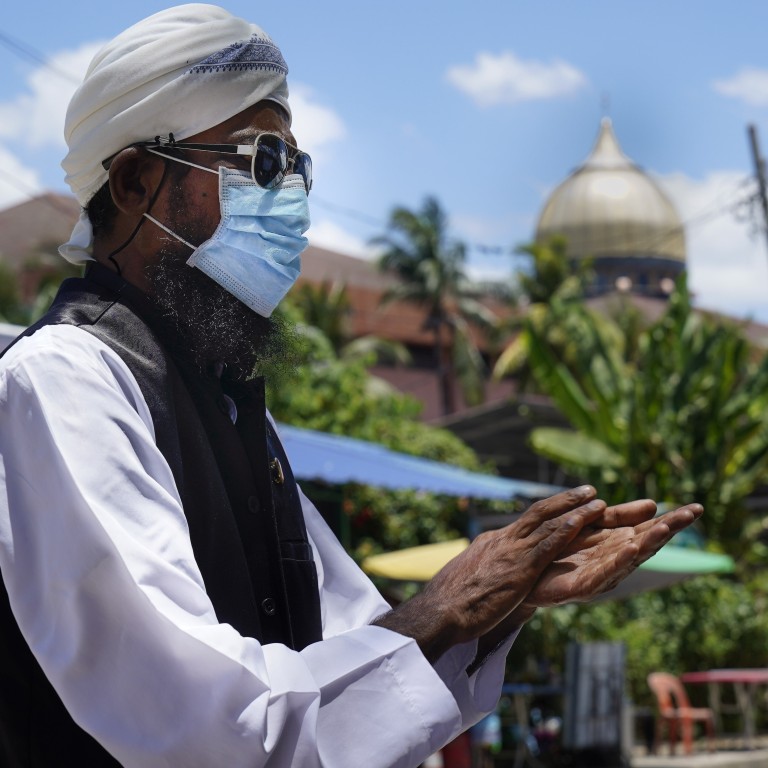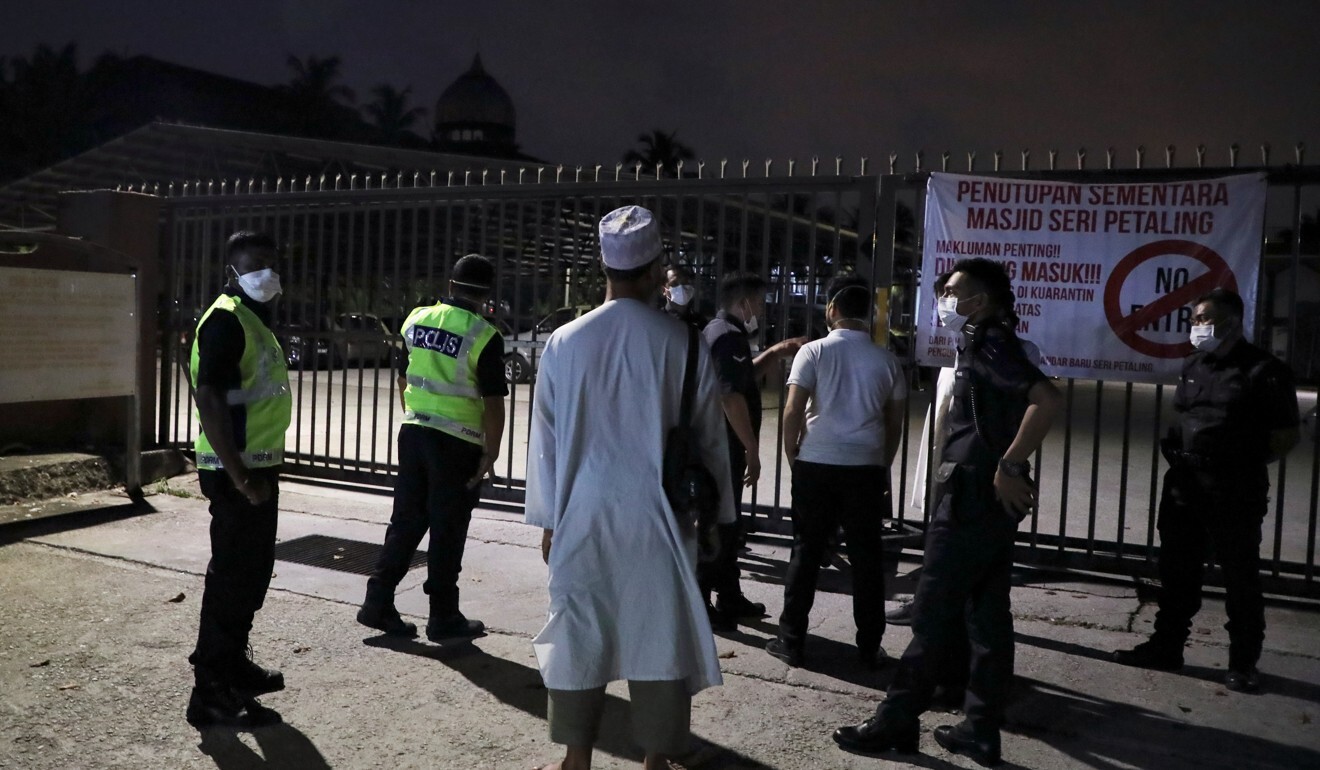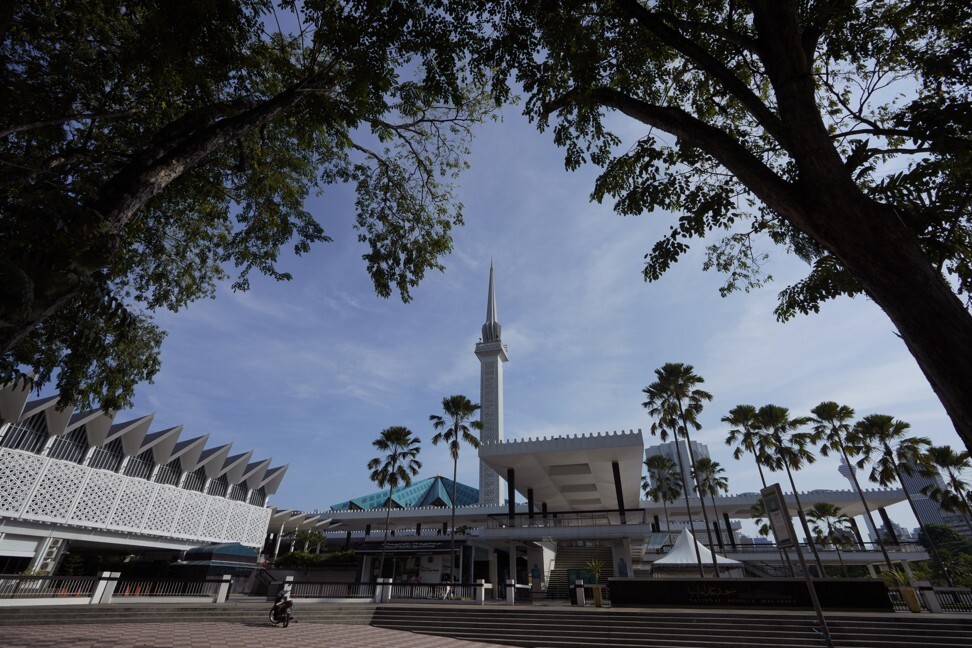
Explainer | How the coronavirus spread at Malaysia’s tabligh Islamic gathering
- Such events see thousands gather for several days of communal prayers and meals, while some also go door-to-door to proselytise
- Nearly 600 coronavirus cases in Southeast Asia have been linked to the event in Malaysia, including more than half of the country’s cases
The gathering – which was attended by 16,000 people, 14,500 of them from Malaysia – resulted in hundreds of new coronavirus cases throughout the country, as well as cases being spread to Thailand, Brunei and Singapore.
WHAT IS A TABLIGH?
Tabligh events usually see several days of communal prayers, meals and speeches. Attendants stay at the mosque, sleeping there as well, and listen to sermons. A portion of attendants are deputised to cook meals and keep the mosque clean.
Walk-ins are allowed to join the gatherings, some of which can attract millions of people, especially the “ijtima” event – an annual gathering that lasts for three days.
Coronavirus: Malaysia looking for 2,000 Rohingya after mosque outbreak
Malaysia’s ijtima this year – held at the Sri Petaling Mosque – was no different to similar events held previously, according to those who attended: two and a half days of prayers and sermons, following which some groups went door-to-door to spread their message.
One other ijtima was organised after Malaysia’s – in South Sulawesi, Indonesia. About 9,000 Muslims gathered despite coronavirus fears, initially ignoring demands from the authorities to postpone the event. However, at the last minute the organisers complied and cancelled the event.

WHO ORGANISES THE GATHERINGS?
Tabligh means “to reach out” in Arabic. The gathering in Malaysia was organised by the Tablighi Jamaat movement, a global missionary society or initiative that champions practising Islam as it was during in the lifetime of the Prophet Muhammad, from dressing to customs and rituals.
Founded in 1927 in India, the movement has a presence in nearly 200 countries and wields considerable influence in Islamic communities. The movement maintains it is apolitical and non-violent, and also shuns technology in its outreach efforts, relying instead on door-to-door preaching and mass gatherings. However, some of its preachers do have a presence on YouTube and television.
According to Barbara Metcalf, an expert in the history of South Asia’a Muslim population, adherents of the philosophy are meant to travel to proselytise for anywhere from an evening or a few days to a prolonged journey.
Coronavirus: Malaysia warns of ‘tsunami-like’ third wave of infections if lockdown not respected
HOW MANY INFECTIONS HAVE BEEN LINKED TO MALAYSIA’S TABLIGH?
Nearly 600 coronavirus cases in Southeast Asia have been linked to the Sri Petaling mosque ijtima, including 513 in Malaysia, 61 in Brunei, 22 in Cambodia, at least five in Singapore and two in Thailand.
According to defence minister Ismail Sabri Yaakob, the police are looking for 4,000 attendees who have not yet come forward, while Malaysian authorities are also scrambling to track down about 2,000 Rohingya men who attended the gathering.
More than 100,000 Rohingya live in Malaysia after fleeing from Myanmar, but they are considered illegal immigrants. Their status would likely make many of them reluctant to identify themselves to get tested for the coronavirus even if they showed symptoms, according to sources in the Rohingya community.
Coronavirus: how Malaysia’s Sri Petaling mosque became a Covid-19 hotspot
ARE THERE RULES BANNING LARGE-SCALE EVENTS?
Under Malaysia’s partial lockdown, all houses of worship and business premises are closed except for supermarkets, public markets, convenience stores and shops selling everyday necessities. Friday communal prayers, obligatory for Muslims, have been suspended.
Malaysians returning from overseas must undergo a health check and self-quarantine for 14 days. Restrictions have also been imposed on the entry of tourists to Malaysia, but foreigners will be allowed to leave the country.
Nationwide, all kindergartens, primary and secondary government and private schools, as well as all public and private higher education institutions and skills-training institutes, are shut.
Indonesia, meanwhile, has urged the public to limit large gatherings but there are no rules banning them.
Additional reporting by Reuters


